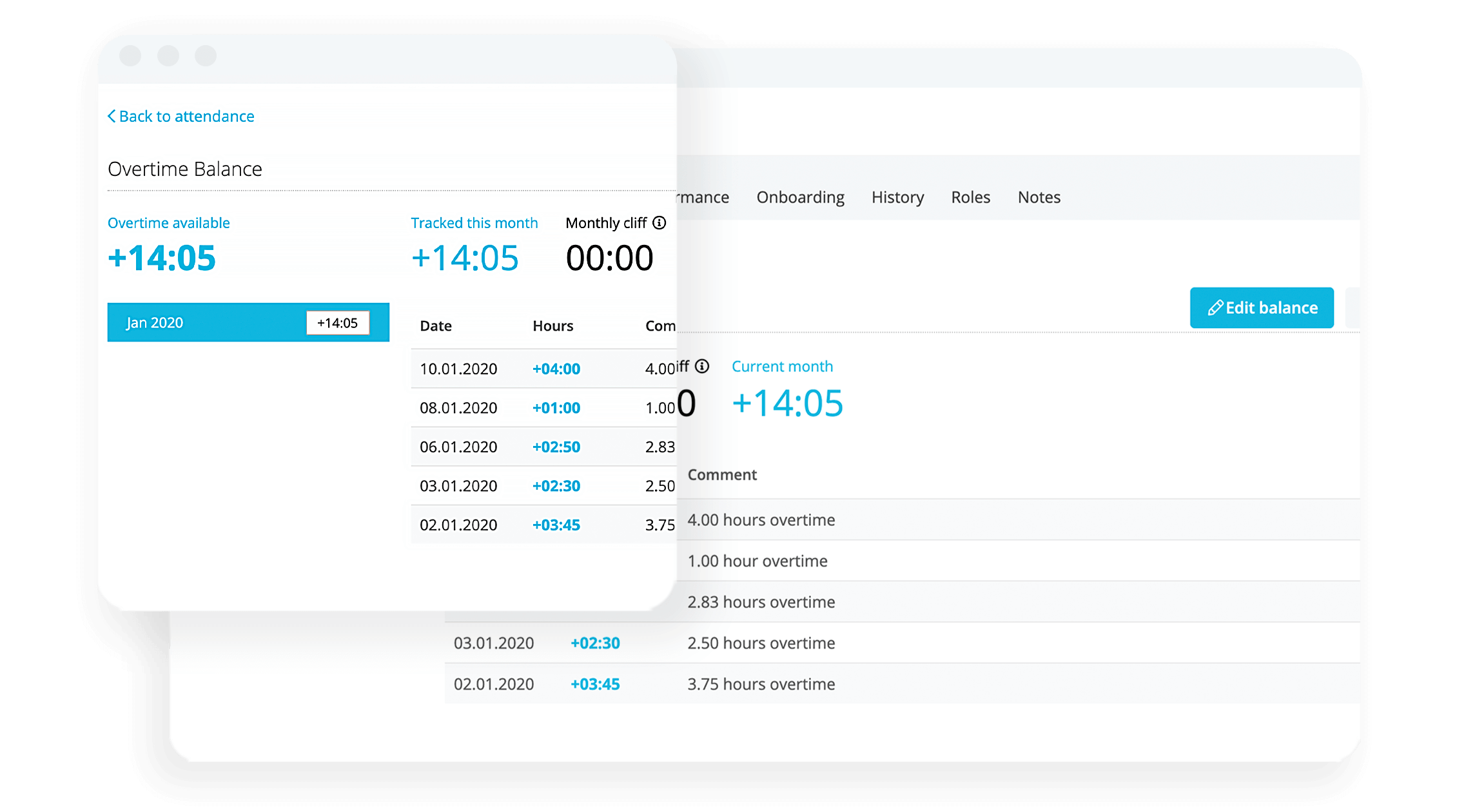Latest Blog Posts
Convert hours to decimal with this easy calculator

Ever heard the term industrial minutes or industrial time? This refers to a way of measuring time that is primarily used in businesses and facilitates the management of working hours.
In this article, we explain everything, offer a handy calculator and explain how to make time tracking even more efficient for your organisation.
Easily record and calculate working times using Personio.What is industrial time?
Industrial time is the duration of a period of time in the decimal system. An industrial hour consists of 100 industrial minutes, instead of 60, which is why the term decimal time (decimal minutes) is also used for this type of calculation.
In contrast, what we consider "normal" time that we use every day is often called standard time or real time:
A standard hour has 60 minutes, a standard minute has 60 seconds.
An industrial hour has 100 minutes, an industrial minute has 100 seconds.
Here’s how that might look in practice:
Normal time | Industrial hours and minutes |
|---|---|
5 hours and 20 minutes | 5.33 (533) |
2 hours and 45 minutes | 2.75 (275) |
A quarter of an hour | 0.25 (25) |
Half an hour | 0.5 (50) |
Three quarters of an hour | 0.75 (75) |
A full hour | 1.0 (100) |
Industrial time is most often used in the management of working hours in companies. For example, for determining and recording daily working hours, calculating overtime/absences or for staff scheduling.
How are industrial minutes calculated?
If you want to convert standard time to industrial time, consider the following:
Take the full hours and divide the minutes by 60, then add the two values together to get the industrial hours.
If you want to calculate the industrial minutes, multiply the number by 100 again.
The formula:
Industry hours = normal hours + normal minutes / 60
Industry minutes = (normal hours + normal minutes / 60) * 100
Taking normal time as an example, let’s consider six hours and 15 minutes. That would result in the application of the following formula…
6 normal hours + 15 normal minutes / 60 = 6 + 0.25 = 6.25 industrial hours
6.25 industrial hours * 100 = 625 industrial minutes
Converting industrial time to normal time
To recalculate standard time from industrial time, consider the number before the decimal point as it corresponds to the standard hours. Multiply the decimal portion after the decimal point by 60, which then corresponds to standard minutes.
Here’s an example taking 6.25 industrial hours:
6.25 industrial hours = 6 hours and 0.25 * 60 minutes = 6 hours and 15 minutes.
What are the advantages of industrial time?
It is relatively complicated to calculate with normal times. Industrial hours and minutes are designed to make it easier for companies to calculate time in a more standardised way.
Numbers such as 1.25 or 7.5 are also easy for us humans to type and pronounce, easy to understand and to calculate in our heads
For example, if you calculate 20:00 (20 hours) + 20:00 (20 hours) in a table, you will not get a total of 40:00 (40 hours), but 16:00 - 16:00 on the next day. This is because the figures are interpreted as times, not durations.
It is also easier for decimal numbers to be produced by machines and software. This is why decimal time or industrial time has established itself as the standard.
Skip the familiar headaches of tracking time

By trusting an all-in-one HR software that encompasses effective time tracking, you can make it easier for your employees to clock in and out with ease. Personio’s solution allows teams to track time and report on time in a seamless way.
Ensure efficiency, maintain compliance and make it an easier experience for your employees and your HR team. Learn more about tracking time with Personio, or speak with an expert today to see how an all-in-one solution can benefit your organisation.

